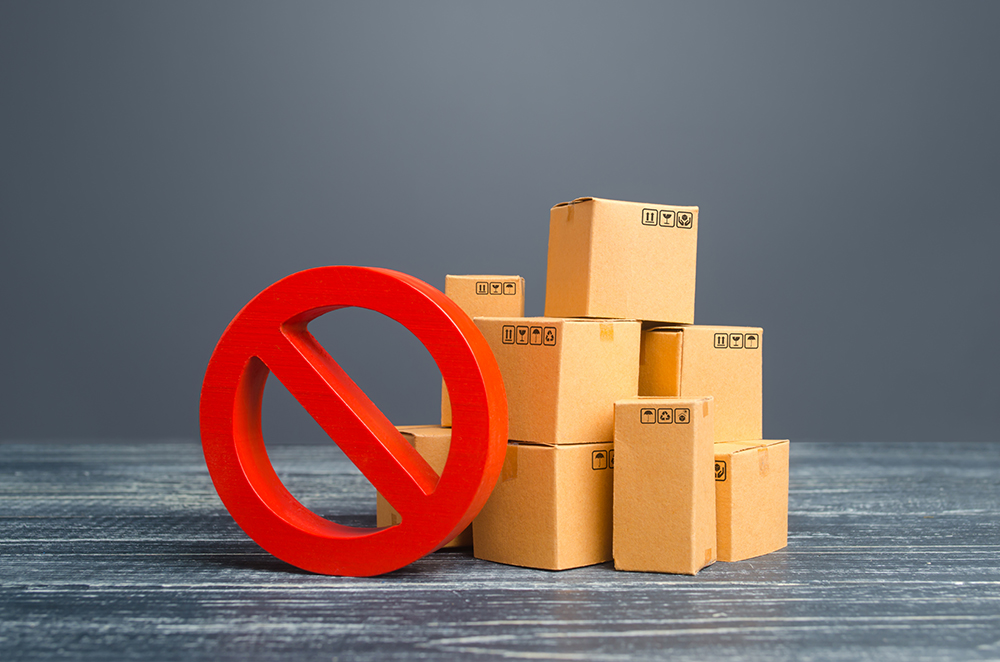For many companies regulatory compliance is something of an afterthought but must be dealt with as they grow their global trade activities.

By Ian Berman, QAD Precision
For many companies, regulatory compliance is something of an afterthought — a “cost of doing business” issue that must be dealt with as they grow their global trade activities.
The media continues to report on companies getting themselves in trouble for not abiding by customs laws, violating sanctions, or for failing to perform due diligence by adequately screening their trading partners.
In 2019, the US Treasury Department’s Office of Foreign Assets Control issued nearly $1.3 billion in fines for sanctions violations.
In recent years, the United States Treasury Department’s Office of Foreign Assets Control (OFAC) and the U.S. Department of Commerce’s Bureau of Industry and Security (BIS) have increased the penalties for violations of export controls. Fines have been as high as nearly $300,000 per violation or twice the value of the transaction — whichever is greater. These fines apply to compliance missteps. Missteps judged to be willful violations have higher monetary penalties — up to $1 million per violation — and authorities may impose custodial sentences. Along with monetary fines, these types of violations can also damage the company’s reputation.
It is worth noting that the U.S. government cuts the penalty in half if companies self disclose compliance missteps. Companies can save serious money by conducting due diligence. Even if a company honestly tries not to break the rules, mistakes can happen. This is why all orders should undergo a corporate screening process.
Beyond the ever-evolving rules imposed by individual governments, many global corporations still have a decentralized — and antiquated — approach to handling global trade activities. By global trade management, I mean management of the customs activities and documents required to move goods in and out of a country, as well as screening all entities involved with the shipment.
Many companies continue to screen trade partners manually, which has a number of potentially costly shortcomings. Manually screening trade partners is a time and labor-intensive process and becomes a thorn in the side of compliance and legal teams that often falls to the wayside. Furthermore, there may be grey areas when it comes to understanding who has control of the process, as well as who can authorize a transaction if a customer ends up matched to an entity on a restricted list. Included in this time suck are the hours required to research false-positive results.
Another misconception is that these restricted lists include only foreign groups, individuals and entities. In reality, they include domestic threats that must be reviewed. In the United States, manufacturers and shippers must abide by deemed export regulations.
Furthermore, when companies screen manually, each country or facility often has its own team processing the screening. Processes, risk assessment, decision-making and internal expertise may vary across teams. As a result, a company will not have a consistent enterprise-wide approach to compliance screening.
Beyond screening for the parties involved, there are other restrictions that must be considered. The embargoed countries list continues to evolve, and with the global landscape as it is there are updates to this list almost daily. This used to be easier — “Don’t ship to Cuba and North Korea” — but now companies need to be very careful about what they are sending and to whom.
The US and European Union sanctions regulations are not limited only to those directly named in sanctions programs. These regulations extend to entities that are majority-owned by a sanctioned party in the EU, and 50% or more owned parties sanctioned by the U.S. In the US, this is known as the OFAC 50% rule.
Truly best-in-class organizations not only have automated the global trade management screening process, but have also single sourced this task on a global basis. In these companies, only true subject matter experts can review the “failed” screening. This not only makes sure that the correct action is taken around the screening, but also creates an audit trail for tracking those failures.
Automating the screening process frees up significant staff resources as compliance personnel need only review screening exceptions. The screening tool should be utilizing some form of an advanced algorithm for optimal matching along with a translation tool to allow for screening names in their native languages. Furthermore, after review, software should enable employees to add entities to a “whitelist” for future use.
Automated restricted party screening not only allows companies to conduct their due diligence and mitigate the risk of a compliance misstep but also frees employees from dealing with non-value add tasks. Subject matter experts now control their companies’ efforts to abide by corporate governance laws and have the ability to capture audit reports should their due diligence be questioned. These audit reports should be directly tied to shipping transactions and any other customs documents.
Automating the global trade process has an array of benefits that far outweigh the cost of implementing a solution. Reducing the risk of non compliance can free up time in the compliance department to allow for your employees to accomplish other value add projects. Without having to manage the daily administration tasks, those team members can start to look into how to take advantage of more free trade agreements, or additional duty drawback opportunities. These are activities that may fall to the wayside when they are having to be reactive as opposed to proactive.

Ian Berman
About the Author
Ian Berman is with QAD Precision. Ian has over 10 years of experience in international transportation and compliance. He holds a Masters Degree in Supply Chain Management and has APICS CLTD Certification.
Scott Ellyson, CEO of East West Manufacturing, brings decades of global manufacturing and supply chain leadership to the conversation. In this episode, he shares practical insights on scaling operations, navigating complexity, and building resilient manufacturing networks in an increasingly connected world.